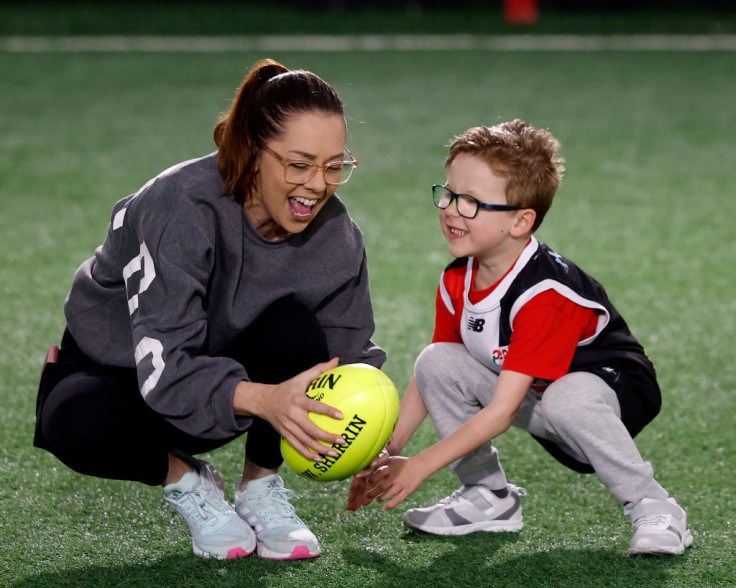
Anxiety in children is a normal part of development, but it can become overwhelming for some children and interfere with their daily lives.
Anxiety is a feeling of worry, nervousness, or unease about something with an uncertain outcome. This can manifest in many ways in children, such as excessive worry about school and social situations or even physical symptoms such as stomach aches.
According to YoungMinds, there is no single cause of anxiety in children, but some factors that may contribute to its development include genetics, traumatic life events, an imbalance of chemicals in the brain, and environmental factors such as stress at home or school.
Additionally, some children may have a naturally anxious temperament, making them more susceptible to developing anxiety disorders.
If this worrying goes on for a longer period, it can leave children feeling tired and lonely and limit the things they feel able to do.
If your child is struggling with anxiety, there are things you can do to help them, including providing emotional support, working on practical strategies together, and finding the right professional help if they need it.
Effective tools to relieve anxiety in children
- Limit exposure to triggers.
According to the Insider, parents need to help their children identify and understand their triggers and limit their exposure to them when possible.
Triggers are specific things that cause a child to experience anxiety, such as certain sounds, places, or situations.
By helping a child identify their triggers, parents can help their children better understand why they feel anxious and what they can do to manage their feelings.
Limiting exposure to triggers can be particularly helpful in reducing anxiety in children. For example, if a child is anxious in social situations, limiting their exposure to those situations can help them feel less overwhelmed.
- Empathize with your children.
Empathy is a vital tool for parents to help their children navigate the challenges of anxiety. By showing empathy, understanding, and support, parents can help their children feel more secure, confident, and capable of managing their feelings.
When parents empathize with their children, it can help the children feel validated and understood.
Children who feel heard and understood are more likely to be open about their feelings and more receptive to support and guidance.
By showing empathy, parents can also help their children develop a positive self-image and increase their self-esteem, all of which can make anxiety in children more manageable.
- Encourage healthy coping mechanisms.
As Mayo Clinic recommends, to make anxiety in children more manageable, you can teach your child healthy ways to cope with stress and anxiety, such as deep breathing exercises, physical activity, and relaxation techniques.
Encouraging healthy coping mechanisms means helping children develop strategies for managing stress and anxiety that are positive, effective, and non-harmful.
- Try physical activities to keep kids moving.
Encouraging your children to engage in physical activity, such as exercise or sports, will help them discover a way to release tension and stress.
Regular physical activity has been shown to reduce stress and anxiety levels in children by releasing endorphins, which are natural feel-good chemicals in the body.
Parents would benefit greatly from a walk outside or a short playtime in the park, as physical activities usually improve children's moods.
However, it is essential to note that not all children with anxiety will enjoy the same type of physical activity, and it's okay to experiment with different activities to find what works best for each child.
It's also important to make physical activity fun and enjoyable so that children will be motivated to continue participating in physical activity as a healthy coping mechanism for managing anxiety.
- Seek professional help.
If managing anxiety in children is taking a toll on you, you should seek professional help to navigate this situation better.
It is normal for human beings to feel anxious. However, if it affects everyday living and may seem too extreme and frequent, visiting a medical professional will be helpful. This could include therapy, counseling, or medication.
A mental health professional can assess your child and diagnose the underlying cause of their anxiety. This information is important for developing an effective treatment plan.
In conclusion, every child and every family is unique, and the best way to address anxiety in children will depend on the individual needs and circumstances of each child and family.
However, some general strategies that can be helpful include developing a solid support system, learning about anxiety and how to manage it, engaging in physical activity, and seeking professional help when needed.
Parents must be patient, persistent, and flexible in helping their children manage anxiety, as it may take time to find the best strategies for their children.
Remember, the goal is not to eliminate anxiety but to help children learn to manage their stress healthily and effectively.
Related Article: Helicopter Parenting: Why It May Not Lead to Success